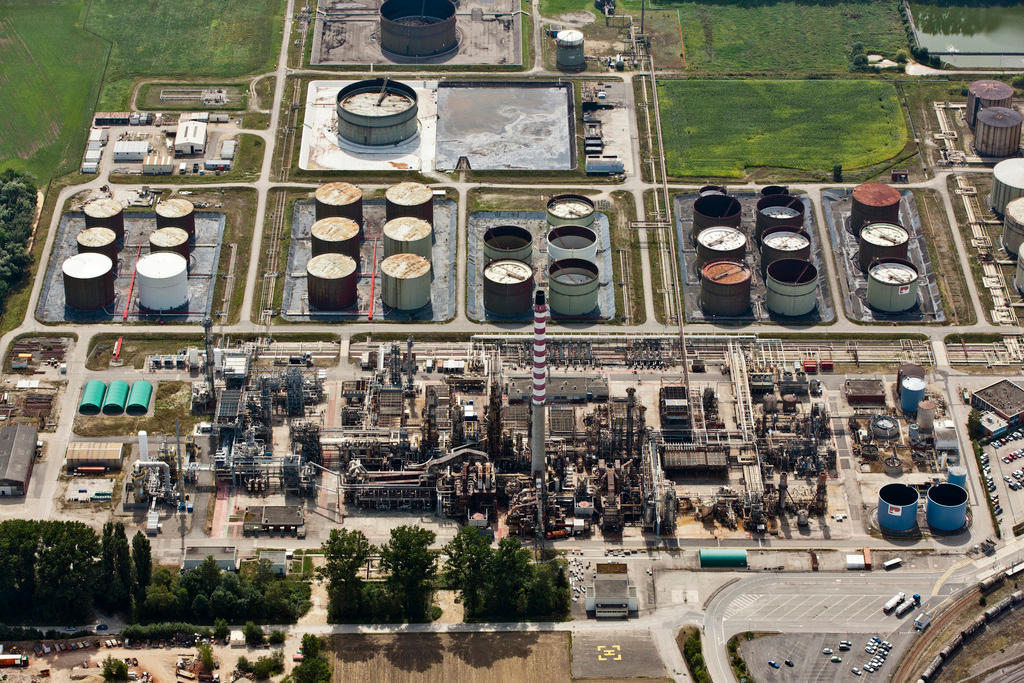US squeezes Venezuela: what now for oil?

The US this week placed sanctions on Petróleos de Venezuela (PDVSA). The US Treasury prohibited US individuals and companies from transacting with the state-owned oil company, while all of the company’s property was blocked. The aim is to cut off revenues to PDVSA to put pressure on President Nicolás Maduro, leader of Venezuela since 2013, who the US no longer recognises as the country’s president.
How will sanctions hit oil supplies?
The sanctions are likely to mean more of a disruption to crude flows than a loss of supply to world markets. Venezuela’s oil industry has been under-funded and mismanaged for a long time. Output was slightly more than 1.1m barrels per day in December, according to Opec, sharply down from 2.4m b/d earlier in the decade. It accounts for a little over 1 per cent of world oil supply.

The sanctions are aimed at blocking the flow of about 500,000 b/d of Venezuelan crude to the US, by preventing any American companies or individuals paying money to PDVSA.
The result is expected to be a reordering of Venezuela’s exports. Barrels rejected by US buyers would probably find homes in markets such as India and China, and US refiners would be forced to turn to other suppliers to replace Venezuelan crude. The extra transport costs, and the surplus of Venezuelan crude looking for buyers, may drive down the prices the country receives. Energy Aspects, a consultancy, estimates some 200,000-300,000 b/d of Venezuelan crude may struggle to find buyers, especially as those outside the US wait to see Europe’s response. It is difficult to make oil sanctions watertight, however, and some Venezuelan crude may still make its way into the US after being rerouted through intermediaries.
How will this affect refiners and refined fuels?
Any US-based refiner buying Venezuelan crude must deposit the payment in escrow accounts which are off-limits to the Maduro government. This includes Citgo, a subsidiary of PDVSA with two refineries in Louisiana and Texas, and other traditional US buyers of Venezuelan crude such as Chevron, PBF Energy and Valero Energy. “We plan to comply with the sanctions and will re-optimise our crude supply to minimise any resulting impacts,” Valero says.
Alternative sources include Mexico’s heavy Maya grade and oil from Canada’s oil sands. But Maya supplies are slim and Canada has limited pipeline capacity to send barrels to the Gulf coast, according to Paul Horsnell, head of commodities research at Standard Chartered.
As refiners are forced to pay more for heavy crude supplies they could reduce operating rates to account for lower profit margins, says JBC Energy, a consultancy. That could curtail output of refined fuels such as diesel and petrol, depleting record stocks of petrol in the US.
Will this lead to higher oil prices?
West Texas Intermediate, the main US oil benchmark, has risen about 1 per cent since the Trump administration last week recognised opposition leader Juan Guaidó as Venezuela’s interim president. That suggests that the turmoil in the country is not looming large for traders, or that any interruption to supplies was already priced in.
More interesting dynamics lurk beneath the surface. Venezuela’s heavy grades of crude are not easily replaced by lighter WTI. As a result, prices for competing streams of heavy oil have rallied as refiners scramble to replace barrels they will lose from Venezuela. Mars, a medium-heavy oil grade pumped from platforms in the Gulf of Mexico, climbed to more than $6 a barrel above WTI. Last summer the prices were equal. In October, heavy Western Canada Select sold at a $50-a-barrel discount to WTI. Now that discount is down to just $9.
How will the rest of the world react?
Some of the world’s largest independent oil traders, including Vitol and Trafigura, buy and sell crude and refined fuel with Venezuela, but the US sanctions raise questions over their business. While trading houses are largely headquartered in London or Geneva, all have large US operations.
On Tuesday traders said aspects of the sanctions were unclear, beyond the facts that shipping oil from Venezuela to the US, or vice versa, was forbidden and that US citizens would not be able to participate in any kind of trade whatsoever. All emphasised they would need to act with caution in respect to any Venezuela-linked trade and comply with all sanctions.
In India, Nayara Energy’s refinery in Vadinar could emerge as one alternative outlet for Venezuelan oil, as could Reliance Industries’ nearby plant in the state of Gujarat. Both are already buyers. Nayara is 50 per cent owned by Russia’s state-backed oil company Rosneft, while Trafigura holds 24.9 per cent.
Indian government officials were assessing any potential fallout of new US sanctions on PDVSA and what it could mean for the country’s refineries, one person familiar with the matter said. Without an outright ban on buying Venezuelan crude, as the US did for Iran’s oil exports, it was difficult to prevent Indian refiners from purchasing it, the person said.
China is also capable of taking additional supplies: according to tanker tracking firm Kpler, China took an average of 321,000 b/d from Venezuela in 2018, while India imported an average of 328,000 b/d.
What happens if the Maduro regime is ousted?
If the sanctions end and a new regime takes over, it could hypothetically lead to reinvestment in Venezuela’s beleaguered oil sector. But analysts caution against optimism. Mr Horsnell points out that the country is short of equipment, supplies and labour. “Even in the event of a peaceful transition of government, we would not expect rapid growth in the output of Venezuelan crude in the near term; it is likely to take years to stabilise output, let alone reverse declines,” he writes.
Copyright The Financial Times Limited 2019

In compliance with the JTI standards
More: SWI swissinfo.ch certified by the Journalism Trust Initiative




You can find an overview of ongoing debates with our journalists here. Please join us!
If you want to start a conversation about a topic raised in this article or want to report factual errors, email us at english@swissinfo.ch.